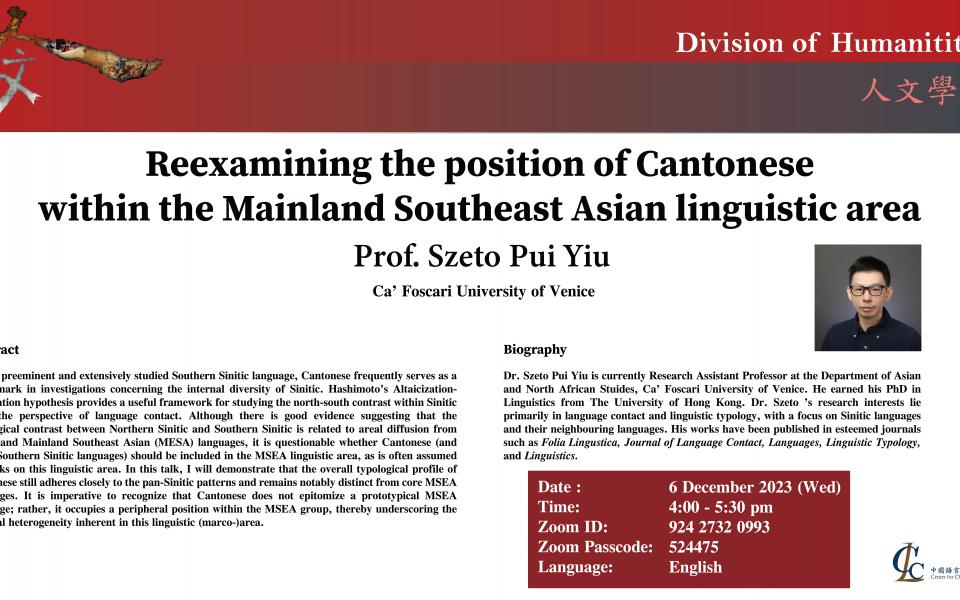Abstract:
As the preeminent and extensively studied Southern Sinitic language, Cantonese frequently serves as a benchmark in investigations concerning the internal diversity of Sinitic. Hashimoto’s Altaicization-Taicization hypothesis provides a useful framework for studying the north-south contrast within Sinitic from the perspective of language contact. Although there is good evidence suggesting that the typological contrast between Northern Sinitic and Southern Sinitic is related to areal diffusion from Altaic and Mainland Southeast Asian (MESA) languages, it is questionable whether Cantonese (and other Southern Sinitic languages) should be included in the MSEA linguistic area, as is often assumed in works on this linguistic area. In this talk, I will demonstrate that the overall typological profile of Cantonese still adheres closely to the pan-Sinitic patterns and remains notably distinct from core MSEA languages. It is imperative to recognize that Cantonese does not epitomize a prototypical MSEA language; rather, it occupies a peripheral position within the MSEA group, thereby underscoring the internal heterogeneity inherent in this linguistic (macro-)area.
Speaker’s biography:
Dr. Szeto Pui Yiu is currently Research Assistant Professor at the Department of Asian and North African Studies, Ca’ Foscari University of Venice. He earned his PhD in Linguistics from The University of Hong Kong. Dr. Szeto’s research interests lie primarily in language contact and linguistic typology, with a focus on Sinitic languages and their neighbouring languages. His works have been published in esteemed journals such as Folia Linguistica, Journal of Language Contact, Languages, Linguistic Typology, and Linguistics.
Zoom ID: 924 2732 0993
Zoom Passcode: 524475
